| Apart from debut actors, another breed that made an equally important, if subtler, mark this year was the debut directors. First time fumbles and awkwardness were no where to be seen—in fact, these alarmingly confident filmmakers made some of the most memorable films of 2007. It is to them we owe the wide variety we got to sample this year, as they gently edged out conventional films with their edgier ideas. And what's most interesting is the diverse backgrounds they came from—Bollywood star Aamir Khan to advertising veteran R Balki to choreographer Ganesh Acharya. Honestly, 2007 was their year. Here's to them. |
| Aamir Khan: Taare Zameen Par He was labelled the interfering actor; the kind who wanted to know and discuss everything about the shot, not just his own lines. Perhaps it was the director in him trying to come out. Aamir Khan always claimed he wanted to make a film, but the opportunity came in an awkward way. When childhood friend Amol Gupte came to him with the script of Taare Zameen Par, it was decided that Aamir would produce it and Gupte would direct. However, Aamir was dissatisfied with Gupte's storytelling and decided to look for a new director. But since they had already found their boy, the talented Darsheel Safary, Aamir was scared the child would grow up too fast and not fit the role anymore. So he decided to take over the reins. Those who've seen TZP vouch for Aamir's quiet, confident style of filmmaking. A fabulous debut has Aamir mixing a message with masala. The result: a critically acclaimed film that's also attracting the audience. |
| Reema Kagti: Honeymoon Travels Pvt Ltd Young, confident and talented, Reema Kagti wasn't sure about pursuing her graduation. Today she is thankful her parents forced her to. She made the breezy comedy Honeymoon Travels Pvt Ltd, which was an instant hit with the audience, without having had any formal training in filmmaking. Heck, she even tried to get into Film and Television Institute of India (FTII), but was rejected thrice. Instead this 34-year-old Assamese learnt on the job—assisting filmmakers like Ashutosh Gowarikar, Mira Nair and Farhan Akhtar. After working with Akhtar as an assistant director, she approached him and his business partner Ritesh Sidhwani with a script about six honeymooning couples and a bus. The rest, as they say, is history. |
| R Balki: Cheeni Kum This former creative director of Lintas advertising agency said way back in 2003 that his dream was to direct a feature film some day. And his wish bore fruition this year with the Amitabh Bachchan-Tabu starrer Cheeni Kum. Though his film is considered unconventional, Balki, as he is commonly known in the advertising circles, says he made a pucca formulaic Bollywood entertainer that had a boy and girl falling in love, facing opposition, and then triumphing. Except, of course, he admits, the age gap of more than 30 years was a bit unconventional. Cheeni Kum received mixed reviews and, while it was hailed for its freshness, it was criticised for being too indulgent, with over-the-top dialogues, and being basically an older man's fantasy. But Balki was nonchalant and reaped the success of the film. |
| Feroz Abbas Khan: Gandhi My Father A film about the tumultuous relationship between Gandhi and his son seemed sacrilegious for a first time director. Yet noted theatre director Feroze Abbas Khan, after directing a string of successful plays like Salgirah, Salesman Ramlal and Gandhi Viruddh Gandhi, embarked upon his first feature film confidently. Backed by Anil Kapoor, Gandhi My Father starred theatre actor Darshan Jariwala as Gandhi with Akshaye Khanna as his son Harilal. Khan says the idea came to him when a member of the Gandhi family told him about the relationship years back. He was so moved by it that he directed a play on it. While Gandhi My Father opened to encouraging critical reviews, it didn't do well at the box-office. Khan now plans to direct a few plays and start shooting his second film, the script of which has already been done. Khan says that he still considers himself a theatre director and this self-impression is likely to change only after he's directed at least two to three films. |
| Sagar Bellary: Bheja Fry Heidi Montag of The HillsBellary calls himself a hardcore Mumbaiite from Mulund. Filmmaking dawned upon him when he was in college and worked as an assistant director for a children's show. He then joined the Satyajit Ray Film and Television Institute (SRFTI) in Kolkata. Bellary says he learnt a lot from Subroto Mitra, the chief cinematographer for Satyajit Ray. When he went looking for work after the completion of SRFTI, Rajat Kapoor gave him a break as chief assistant director for the film Raghu Romeo. Kapoor, who had immense faith in Bellary, then agreed to back his first directorial venture Bheja Fry. |
| Anil Mehta: Aaja Nachle For a movie this hyped, silver-haired Anil Mehta remained relatively low-key. The cinematographer of such films as Lagaan, Khamoshi, Hum Dil De Chuke Sanam and Kabhi Alvida Na Kehna, this was Mehta's first tryst as director. An FTII graduate who started his career in advertising, he had done Mani Kaul's 1994 short film, Cloud Door. Aaja Nachle was much awaited because it marked the comeback of Madhuri Dixit, and Mehta had a grim task at hand—to make a film worthy of her comeback that was commercially successful as well. What followed was a script revolving around dance that gave ample scope to Madhuri to exploit her talents as dancer and actress. Interestingly, for his debut feature, Mehta used cinematographer Mohanan (of Farhan Akhtar's Don fame). The film didn't do as well as expected, and Mehta has gone on record blaming overtly harsh film reviews as the likely cause. |
| Navdeep Singh: Manorama Six Feet Under The surprise success of 2007, Manorama's unapologetically languorous pace could fool one into believing that this confident piece of filmmaking was the work of an experienced filmmaker. The film trails the life of a simpleton writer who gets embroiled in a murder mystery. Navdeep Singh was in the USA for eight years before moving to Mumbai. He worked with an advertising agency and directed a number of award-winning commercials. Singh says he was lucky to have got the eclectic cast he wished for. The film also marked the comeback of actress Sarika. Singh says he didn't have to do much convincing there—the actress read the script and gave her nod for the role of Manorama. The film, also starring Abhay Deol in the central role, Gul Panag and Raima Sen, received excellent critical reviews and did well in multiplexes. |
| Amrit Sagar: 1971 Amrit Sagar revived late Ramanand Sagar's film production after nearly two decades with his debut film 1971. Sagar had decided at age 12 that he wanted to be a director. He studied filmmaking at California College of Arts in San Francisco and then completed a four-year Bachelor in Fine Arts course. When he came back to India, he got involved with Sagar Arts's television serials like Prithviraj and Lucky and Hatim. Inspiration for 1971 came when Sagar was researching on the internet and came upon an article about how 54 POWs are still languishing in Pakistani jails. He even met some of the families that were involved and that's how the script was born. The film, was critically acclaimed, but like others in the war film genre, it failed at the box-office. |
| Ganesh Acharya: Swami His years in the industry were spent teaching dance to Bollywood's A-listers, some of whom were impossibly bad movers. Without any formal training in direction or any experience assisting a filmmaker, Ganesh Acharya announced his directorial debut this year with the low-key Swami, starring Manoj Bajpai and Juhi Chawla. The film followed the lives of a middle-class couple and the trials and tribulations they face in life. His parents—his mother is a south Indian and father a Maharashtrian—inspired the film. Being a Bollywood choreographer did rub off on the film, though in an unexpected way. While there wasn't a single dance sequence in the film, Acharya chose to credit his work as 'A movie choreographed by Ganesh Acharya'. |
| Sajid Khan: Heyy Babyy This former TV funnyman and host has wanted to make a film ever since he was four. His inspiration came from his philandering friend whose roving eye didn't stop even after marriage. What did transform him, however, was the birth of his baby daughter. Sajid Khan, once decided on the story, went through 17 drafts before the final screenplay emerged. Director Farah Khan's little brother had, earlier, directed a story in Ram Gopal Varma's Darna Zaroori Hai. But Heyy Babyy was his feature film debut. Sajid says he was inspired by Hrishikesh Mukherjee's filmmaking style—simple storytelling and uncomplicated camera angles. The film was a huge hit, one of the biggies of the year. |
Enjoy😊









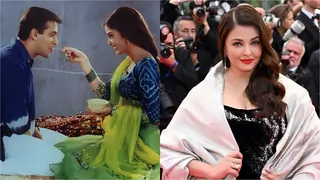

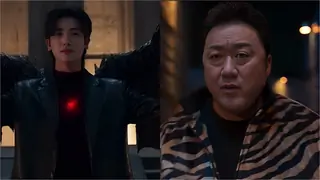
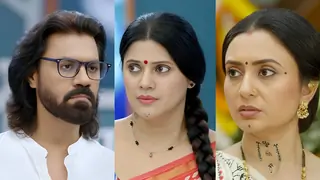


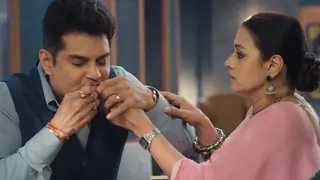

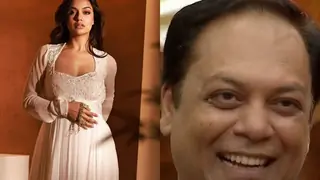

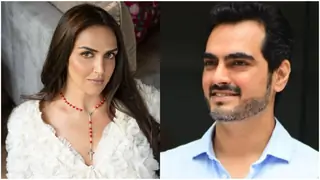



3